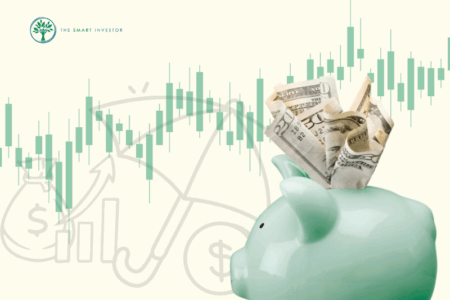Are you afraid of falling stock prices?
Market reactions to news, from economic data to earnings, could cause prices to fluctuate wildly.
As a rookie investor, this volatility was daunting and made me question the safety of my investments.
As you will see later, it’s important to remember that volatility doesn’t necessarily mean risk.
In fact, as long as the underlying business remains strong, you shouldn’t be afraid to invest.
Conservatism and a long track record
A great example of a business that has undergone sharp share price swings is Boustead Singapore Limited (SGX: F9D), or BSL.
The conglomerate’s roots date back to 1828, adopting its current name in 1997.
Since fiscal 2003 (FY2003), BSL has consistently paid dividends.
But it didn’t mean its stock price was steadily rising.
During the great financial crisis (GFC) of 2009, BSL’s share price plummeted from around S$1 at the beginning of 2008 to below S$0.40 in March 2009.
This painful decline happened despite the business having a strong balance sheet and consistent free cash flow generation.
What’s more, the stock was paying a dividend throughout the GFC.
So, rather than panicking and selling during this downturn, it’s advisable to remain calm and hold onto your BSL shares. After all, the volatility is likely temporary, and the company’s fundamental strength will likely drive its recovery.
By the end of 2010, its share price was back up above S$0.90.
Emotional control
Volatility is a natural part of a healthy stock market. It’s the price investors pay for long-term returns.
Successful investing requires not only sound corporate analysis and financial knowledge but also emotional control.
Fear and greed are two powerful emotions that can influence your investment decisions.
Fear, in particular, often leads to overreactions to bad news, a phenomenon known as the ‘overreaction bias.’
This emotion can cause you to make impulsive decisions that you may later regret.
Therefore, emotional control is essential.
Changing your point of view
Having established volatility as a normal part of investing, it’s time to shift your perspective.
Instead of seeing fluctuating share prices as a challenge, view them as opportunities to increase your stakes in solid, well-managed companies.
Remember, established companies rarely experience sharp declines unless there’s a severe economic crisis or widespread pessimism.
A great example is blue-chip stalwart DBS Group (SGX: D05).
Singapore’s largest bank saw its share price plunge by 35% to a low of S$15.35 in just three and a half months back in March 2020 when the pandemic broke out.
Fast forward to today, and the bank’s share price has more than doubled from that level to close at S$35.56.
Get Smart: Seizing the moment
I could go on with other similar examples, but I think you get the point.
Share prices routinely rise and fall because of a multitude of factors.
If you concentrate on the quality of the business and understand its characteristics, you are in a better position to pull the trigger when its share price plunges.
It’s not going to be an easy decision as it is impossible to rid yourself completely of all emotion, but I guarantee you that in the long run, it will be a profitable one.
Our beginner’s guide to investing is finally here! Many investors took years to understand the principles inside, but you can have it all in one afternoon. If you have just started investing, download our free guide today so you can catch up quickly. Click here to download now.
Follow us on Facebook and Telegram for the latest investing news and analyses!
Disclosure: Royston Yang owns shares of Boustead Singapore and DBS Group.





